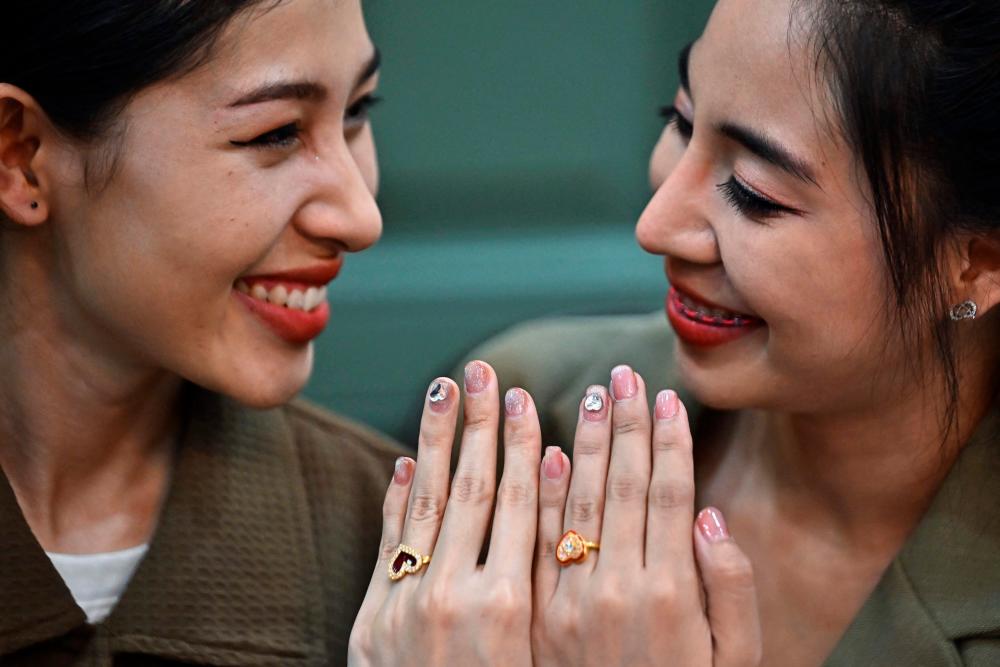BANGKOK: The Thai senate will Tuesday debate a bill to legalise same-sex marriage, as the kingdom moves towards becoming the first Southeast Asian country to recognise marriage equality.
Thailand has long enjoyed an international reputation for tolerance of the LGBTQ community, but activists have struggled for decades against conservative attitudes and values.
The lower house easily approved the law last week and the legislation now moves to the country’s unelected senate, which is stacked with conservative appointees named by the last junta.
Senators will discuss the bill, which changes references to “men”, “women”, “husbands” and “wives” in the marriage law to gender-neutral terms, and hold a first vote before passing it to a committee for further consideration.
The senate cannot reject the legislation but it can send it back to the lower house for further debate for 180 days.
It will come back for two more senate votes, with the next probably no earlier than July.
Paulie Nataya Paomephan, who won Miss Trans Thailand in 2023, said until recently she had never dreamed that transgender people would be able to legally marry in Thailand.
“I think it is because politicians have to adapt themselves to the changing world,“ she told AFP, adding that she and her boyfriend of three years planned to marry if the law passed.
Prime Minister Srettha Thavisin said he was “proud of our pride” after the lower house voted to approve the bill in a 399-10 landslide.
“The passing (of this law) in the parliament today is a proud moment for Thai society who will walk together towards social equality and respect differences,“ he wrote on social media platform X.
Across Asia, only Taiwan and Nepal recognise same-sex marriage. Last year, India’s highest court deferred the decision to parliament, and Hong Kong’s top court stopped just short of granting full marriage rights.
LGBTQ activists celebrated last Wednesday’s vote as a significant milestone on the road to equality.
Inside parliament, a small burst of cheers and clapping accompanied the final vote, with one representative waving a rainbow flag.
The prime minister has been vocal in his support for the LGBTQ community, making the marriage equality policy a signature issue and telling reporters last year that the change would strengthen family structures.
Opinion polls reported by local media show the law has overwhelming support among Thais.
While Thailand has a reputation for tolerance, much of the Buddhist-majority country remains conservative, and LGBTQ people, while highly visible, still face barriers and discrimination.
Activists have been pushing for same-sex marriage rights for more than a decade, but in a kingdom where politics is regularly upended by coups and mass street protests, the advocacy did not get far.
Activist Ann Waaddao Chumaporn said she knew of dozens of LGBTQ couples ready to tie the knot once the law is passed, which she hoped would happen this year.
“Once the law is enforced, yes of course, it will change Thai society,“ she told AFP.









